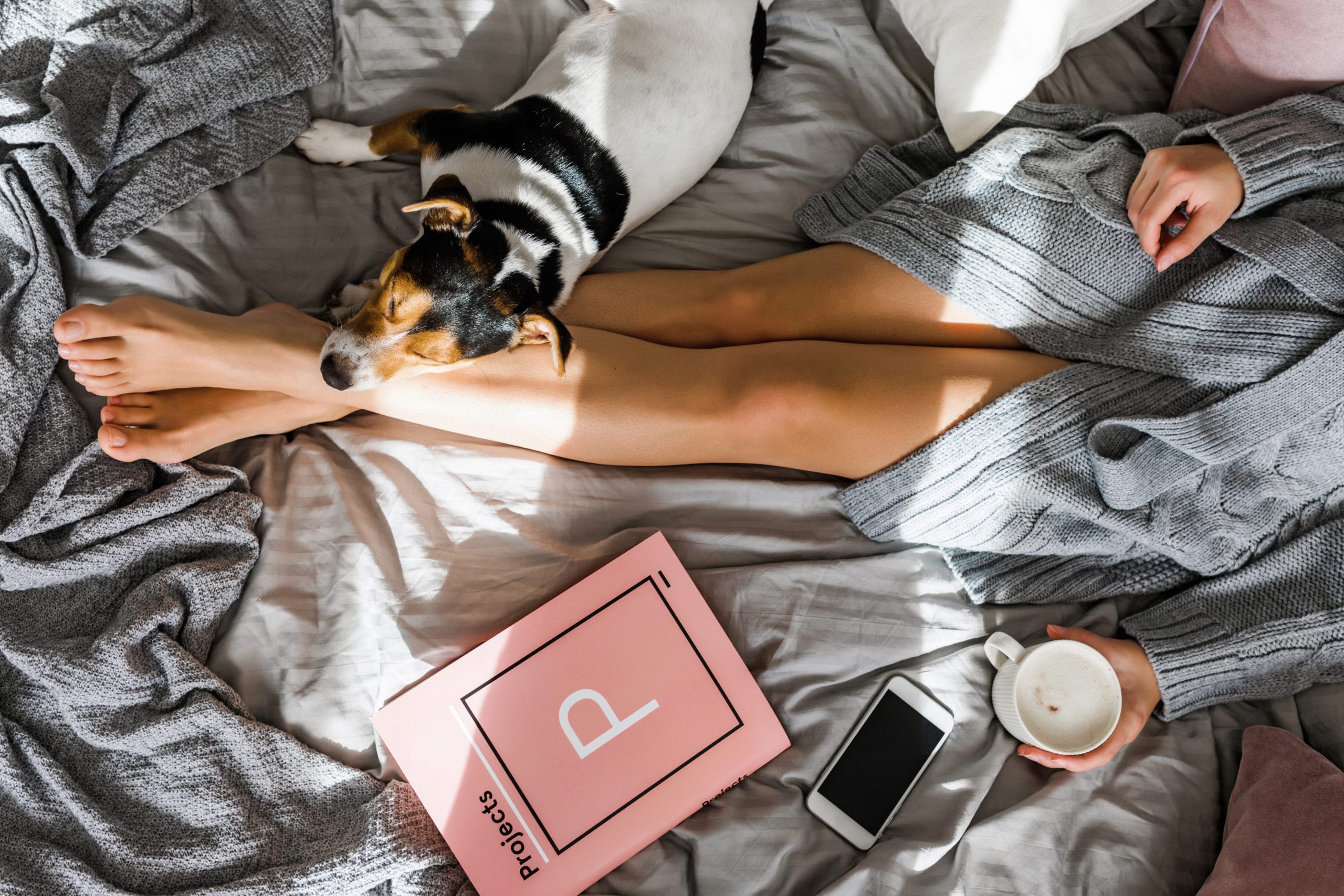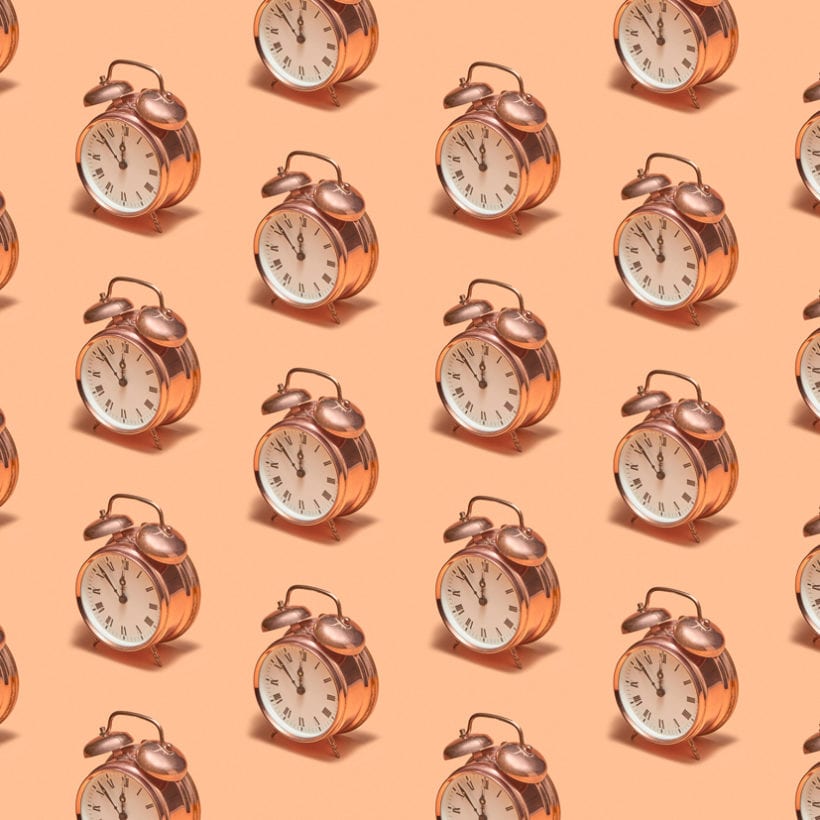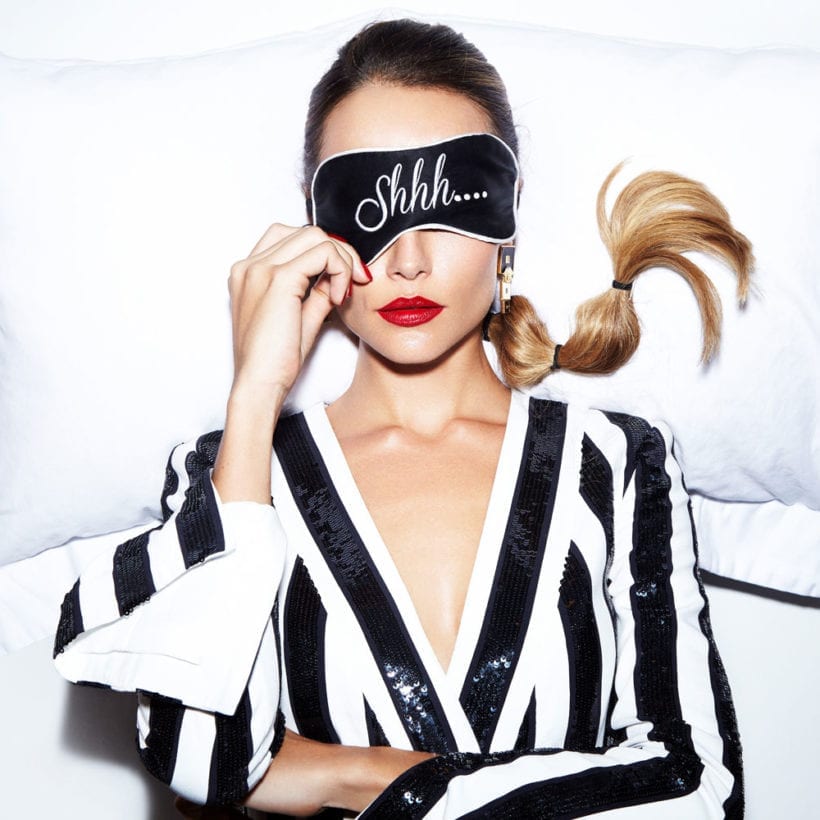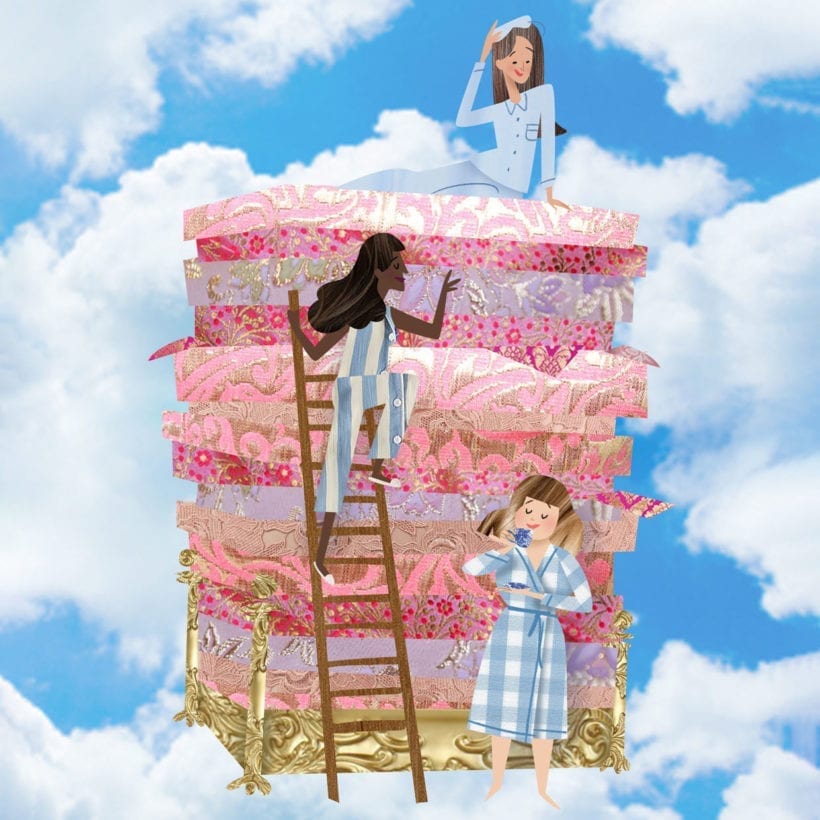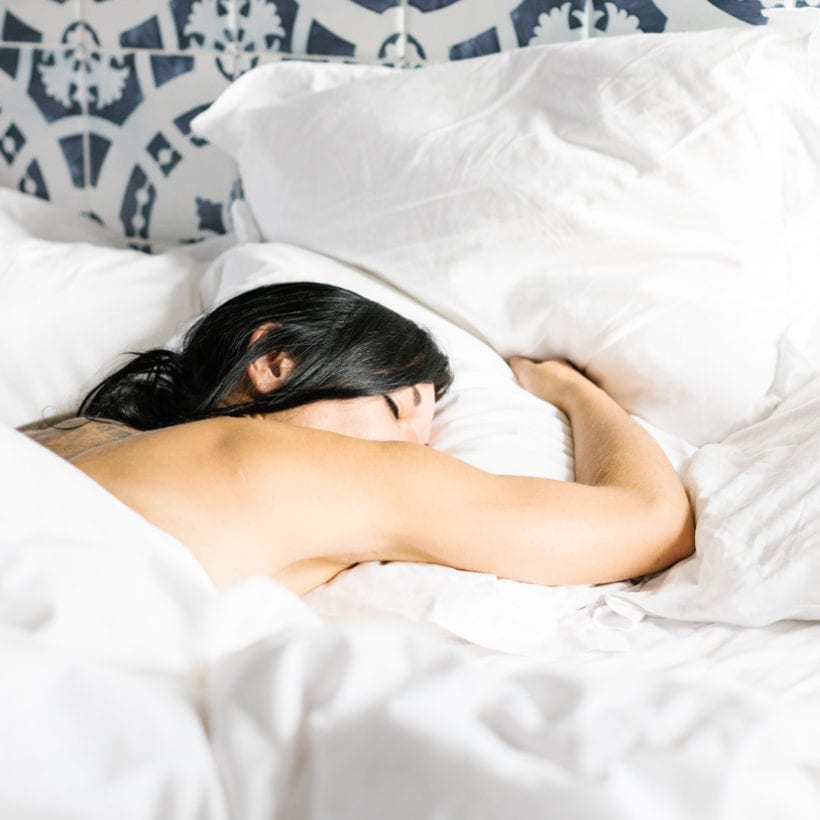The average person spends about one-third of their life sleeping — granted they get the recommended seven to nine hours of shut eye every night. We call those people the lucky ones. If you’ve landed here, we have a feeling you probably aren’t getting enough sleep. The concept of sleep is painfully simple: Lay down, close your eyes. But whether you’re feeling weighed down by stress or you got sucked down a TikTok rabbit hole, there are tons of distractions that prevent you from getting to bed at a reasonable hour. With our busy lives, it’s easy to understand why humans are the only ones that willingly delay sleep.
Perhaps you’re not even sure why getting enough rest is so important. Or, you don’t know how to create the right environment that’s conducive to better sleep. The good news is that every night brings a fresh opportunity to do it right and we’re here to help you figure out how to finally “sleep like a baby.” Oh, and if you’re reading this in bed, go ahead and turn on that blue light filter on your phone (more on that below). Now, dive in:
Myth: Everyone needs 8 hours of sleep.
FALSE: “No, it’s merely an average. Kind of like, ‘Do all men require 2200 calories/day?’” — W. Christopher Winter, Charlottesville Neurology and Sleep Medicine President
Myth: Not getting enough sleep can lead to weight gain.
TRUE: “Sleep deprivation can increase your risk of chronic medical conditions like obesity, diabetes and heart disease.”- Seema Sarin, M.D., director of Lifestyle Medicine at EHE Health
“The sleeping brain starts to crave more calories, feel less full, and simply want to do less.” – Winter
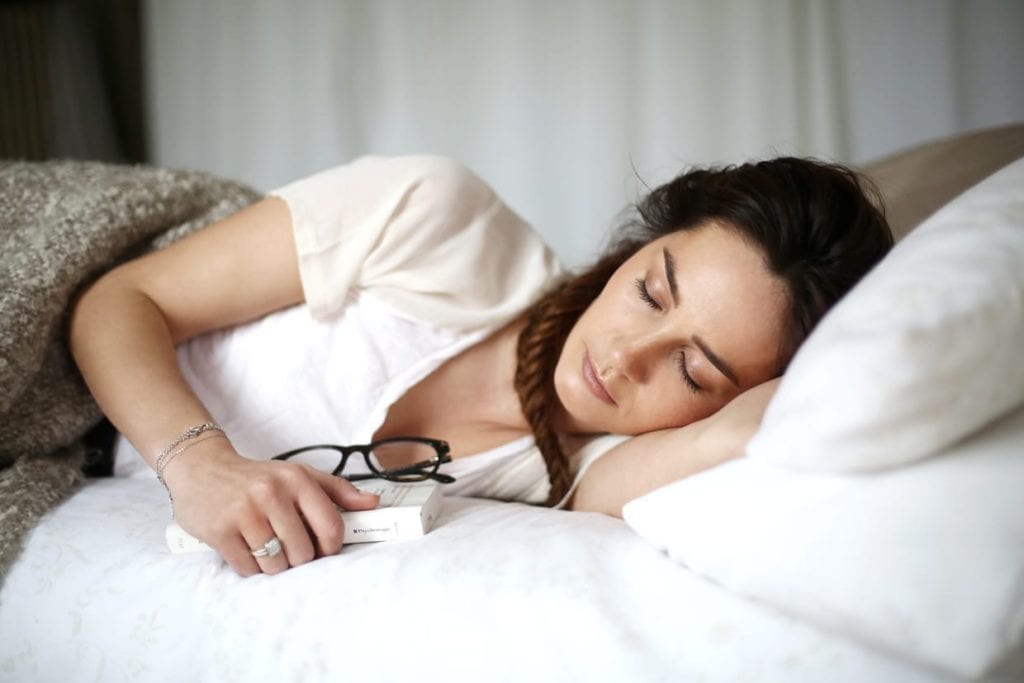
Myth: You can make up for not getting enough sleep.
FALSE: “When you are partially sleep-deprived, the next opportunity you get, you drop into a deep sleep much faster. In a sense, then, you are compensating for the decrease in a deep sleep on previous nights. However, you can’t make up the day you spent sleep deprived — which was most likely a day spent more stressed, with a weakened immune system, and impaired learning ability.” — Rockwell Shah, sleep expert and founder of the napping app, Pzizz.
Myth: A good night’s sleep is impossible to achieve.
FALSE: The first step towards a peaceful slumber starts with perfecting the environment around you. Take each of the five senses and see if you are catering to them. Sight, sound, smell, taste and touch affect us while we are awake, so it makes sense they affect us while we are asleep (or trying to reach REM).
SIGHT
Q: How does blue light affect sleep?
“Light has the largest effect on sleep. It has within its spectrum something called blue light, which isn’t actually blue, but it’s a wavelength of light between 440 and 480 nm inside that wavelength, and when that wavelength hits our eyeballs, it turns off the melatonin faucet in our brain.” — Michael J. Breus, known to millions as The Sleep Doctor.
Q: Do blackout curtains do more harm than good?
“The big issue with blackout curtains is that they work really well, so it can make it difficult for people to wake up in the morning. But if you live in a well-lit environment and want to sleep, they can be very helpful. Generally, I use an eye mask. It’s easier, and I can travel with it.” — Breus
SOUND
Q: What are the most popular sounds for sleep?
Finding the right background noise as you drift off to sleep isn’t one-size-fits-all. Try out one of the top sounds to figure out which works best for you as you count sheep.
- White Noise
- Pink Noise (nature sounds fall in this category)
- Calming Music
- Soothing voices
Q: Is noise pollution killing sleep?
“It turns out that the more quiet [sic] it is, the more acute your hearing becomes, which is fascinating.” – Breus
“People have more access to music, podcasts … YouTube, Friends reruns, etc. that mess up our sleep at night.” — Winter
SMELL
Q: What scents are best for sleep?
“There are aromas that can be helpful for relaxation. So far, the only two scents we’ve found that have that effect are lavender and vanilla.” — Breus 
Q: What are the scents you should avoid?
According to the National Sleep Foundation, you should stay clear of energizing scents. These include Citrus, Peppermint, Rosemary and Eucalyptus. Using an air filter is the best way to introduce fresh air and clear out pollutants contributing to allergies and breathing problems that might disrupt your sleep.
TASTE
Q: Are sleep teas effective?
“Traditional East Asian Medicine (TEAM) has made use of herbal teas for millennia to assist with every health issue you can imagine, from sleep and stress to impotence and immune support. There is an increasing amount of scientific evidence that supports the effectiveness of certain herbal teas as sleep aid… I can recommend these ingredients to improve sleep quality: valerian root, passionflower, German chamomile, kava, and herbs like Astragali Radix (achyranthes root), Angelicae gigantis Radix (Chinese Angelica root) and Zizyphi Fructus (jujube fruit/Chinese date),” — Tracy Tredoux, registered nutritional therapist
Q: What is the best time to eat before bed?
“It takes a few hours for the stomach to be emptied after a meal and eating too close to bedtime can give rise to digestive issues such as heartburn, causing one to have a restless night’s sleep … You should give yourself a three to four-hour window between your last meal of the day and bedtime.” — Tredoux
TOUCH
Q: What is the best sleep pose?
“Sleeping on your back is generally the best position since it is the best way to displace weight across the skeletal frame. Sleeping on your stomach is the worst due to neck and back pain. However, if you snore, lying on your back is actually the worst position.” — Breus
Side sleepers need a firmer and thicker pillow, stomach sleepers need a soft pillow – or no pillow at all – and back sleepers need a flatter pillow to keep their head and neck in alignment.
Q: What workout promotes sleep?
The National Sleep organization says that people who work out will fall asleep faster and wake up less. As for the best workout? “Anything cardio.” — Breus
We only recommend products we have independently researched, tested, and loved. If you purchase a product found through our links, Sunday Edit may earn an affiliate commission.
